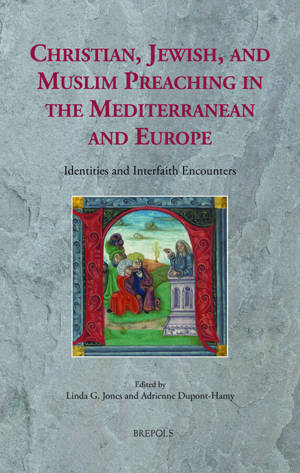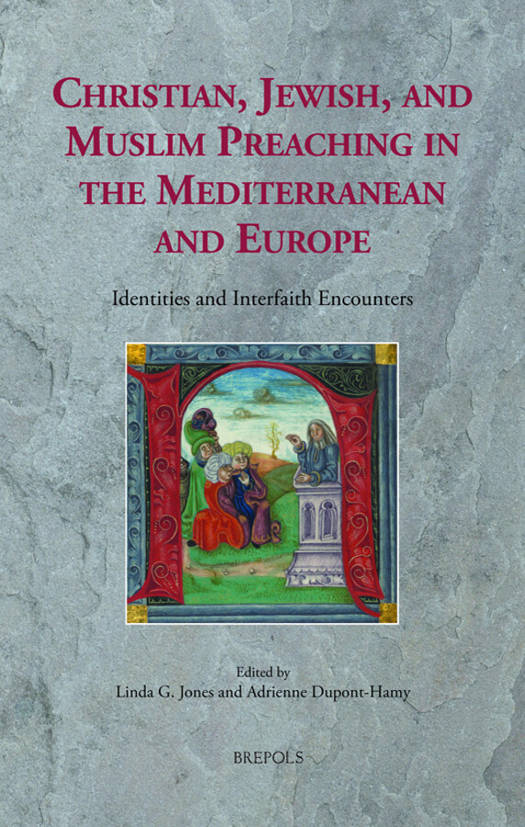
Bedankt voor het vertrouwen het afgelopen jaar! Om jou te bedanken bieden we GRATIS verzending (in België) aan op alles gedurende de hele maand januari.
- Afhalen na 1 uur in een winkel met voorraad
- In januari gratis thuislevering in België
- Ruim aanbod met 7 miljoen producten
Bedankt voor het vertrouwen het afgelopen jaar! Om jou te bedanken bieden we GRATIS verzending (in België) aan op alles gedurende de hele maand januari.
- Afhalen na 1 uur in een winkel met voorraad
- In januari gratis thuislevering in België
- Ruim aanbod met 7 miljoen producten
Zoeken
Christian, Jewish, and Muslim Preaching in the Mediterranean and Europe
Identities and Interfaith Encounters
Linda G. Jones
Hardcover | Engels
€ 106,00
+ 212 punten
Omschrijving
This volume explores the sermons and activities of Christian, Jewish, and Muslim preachers who shaped ideas about religious and gendered identities and alterity throughout the Mediterranean and northern Europe. Preachers of all three traditions played a decisive role in defining the religious identities of their communities, often in response to negative images projected onto religious others. The studies cover a broad spectrum of premodern Europe and the Mediterranean and address the ways that preaching reflects transcultural contacts as well as social, intellectual, and hermeneutical encounters among diverse societies and religious communities. The essays are divided into three themes. Part One, 'Religious and Gendered Identities and Alterities, ' examines how religious identity is inflected by the presence or the 'absent presence' of religious others and interrogates how gender informs religious identity, piety, and alterity. The chapters in Part Two, 'Hermeneutical Identities, Alterities, and Transcultural Relations in Christian and Jewish Preaching', offer contrasting interpretations of the impact of anti-Judaism in Christian preaching and analyse Jewish responses to Christian polemic. Part Three, 'Muslim and Christian Orators and Inter-faith Encounters, ' explores these encounters from the dual perspectives of Crusade and military conflict and interreligious dialogue, disputation, and proselytization. The volume positions itself at the intellectual crossroads between comparative medieval sermons studies and transcultural Mediterranean and European studies. Its treatment of Jewish, Christian, and Muslim preaching, together with its emphasis on the Iberian Peninsula, will broaden and deepen the scope of medieval sermon studies.
Specificaties
Betrokkenen
- Auteur(s):
- Uitgeverij:
Inhoud
- Aantal bladzijden:
- 337
- Taal:
- Engels
Eigenschappen
- Productcode (EAN):
- 9782503582719
- Verschijningsdatum:
- 1/11/2019
- Uitvoering:
- Hardcover
- Formaat:
- Genaaid
- Afmetingen:
- 163 mm x 239 mm
- Gewicht:
- 725 g

Alleen bij Standaard Boekhandel
+ 212 punten op je klantenkaart van Standaard Boekhandel
Beoordelingen
We publiceren alleen reviews die voldoen aan de voorwaarden voor reviews. Bekijk onze voorwaarden voor reviews.









